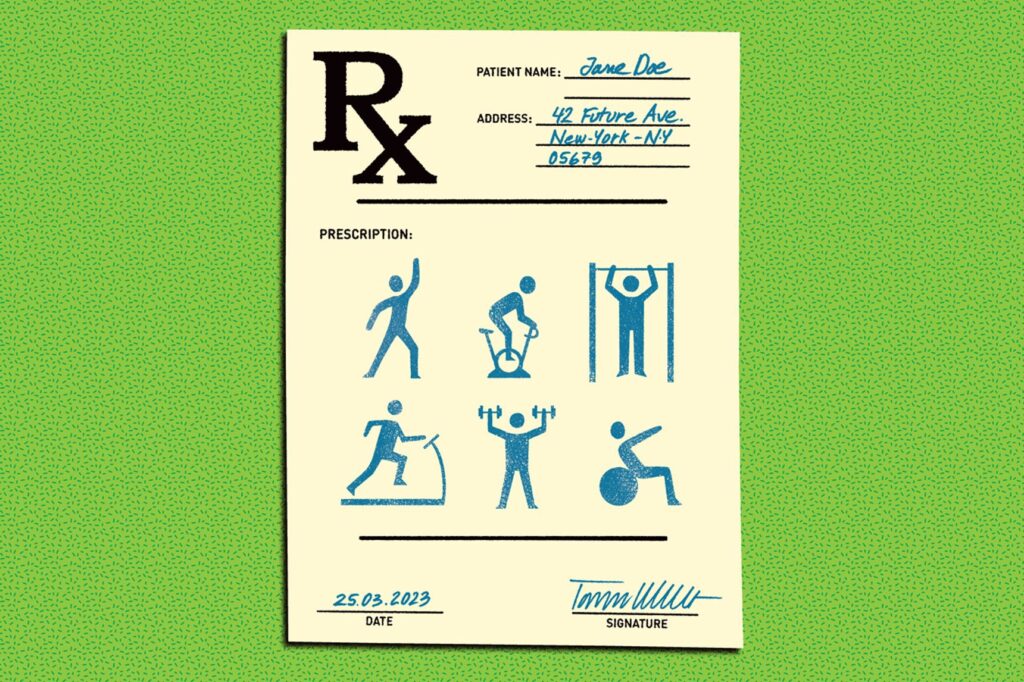Exercise Can Be the Best Antidepressant
By Susan Pinker
www.wsj.com/articles/exercise-can-be-the-best-antidepressant-5101a538
One of the highlights of my pandemic workweek was the Zoom workout I did with a dozen fellow swimmers once we lost access to our pool. Most aspects of my life were upended, but the 7:45 a.m. home exercise session was a constant: a warm-up, two sets of resistance exercises designed by our loyal coach, then stretching and gabbing. None of us wanted to give up this routine when restrictions eased, and we’re still at it.
I feel more upbeat and quicker on the uptake on days when I do planks and squats. Now a new paper evaluating studies of the impact of exercise on mood shows that physical activity, of any kind, is just as effective as antidepressants at reducing feelings of anxiety and depression—and sometimes more effective.
Dr. Ben Singh, a research fellow at the University of South Australia, was the lead author of the study, which appeared in February in the British Journal of Sports Medicine. He and 12 other scientists combed the research literature for all randomly controlled studies published before 2022 that involved adding exercise to a person’s “usual care,” to see how physical activity might relieve psychological distress.
The group found 97 reviews, which together comprised 1,039 distinct randomly controlled trials and over 128,000 participants, many of whom had symptoms of depression. “Usual care” referred to whatever the person was already doing to stabilize their moods, whether it was taking antidepressants, seeing a psychologist, doing both or doing nothing at all. “We didn’t want them to replace their treatment with exercise but to add exercise into their day,” said Dr. Singh.
Statistical crunching revealed that as little as 12 weeks of exercise can mitigate depression, while often achieving faster results than antidepressants. “Any type of movement is effective: a bike ride, yoga or Pilates” said Dr. Singh. He mentioned that resistance training (like my Zoom workout) was best for reducing symptoms of depression, while yoga and Pilates were best at tamping down anxiety. “The higher the intensity, the better,” Dr. Singh said. “But just a walk around your neighborhood is effective, too.”
Exercise is free, rarely induces side effects and can muffle existing feelings of anxiety and depression, or even prevent their occurrence in the first place, according to a 2018 meta-analysis. Still, “It’s very rare that doctors say, ‘I need you to exercise three times a week, for at least 30 minutes, at a brisk walking pace,’” said Dr. Singh. A large Canadian study of 13,000 primary care physicians showed that while 70% mentioned exercise to their patients, barely 16% wrote a prescription recommending it. “Exercise is considered ‘complementary’ like acupuncture,” said Dr. Singh, but “there’s no evidence that acupuncture has any effect, yet there’s lots of evidence for exercise.”
Exercise isn’t a cure-all, and the study doesn’t establish how long the reprieve from depression and anxiety lasts. The authors write that the “effectiveness of physical activity diminished with longer duration interventions,” most likely because over time the participants exercised less often or stopped altogether.
And there’s the rub. Someone who is so depressed they can’t get out of bed might not be motivated to walk around the block, much less to do jumping jacks and burpees. That could be one reason why the uplifting effects of exercise are weaker for more serious forms of depression. Even if you do get started, if you’re feeling ill, making exercise a habit is so much harder than taking a pill.


